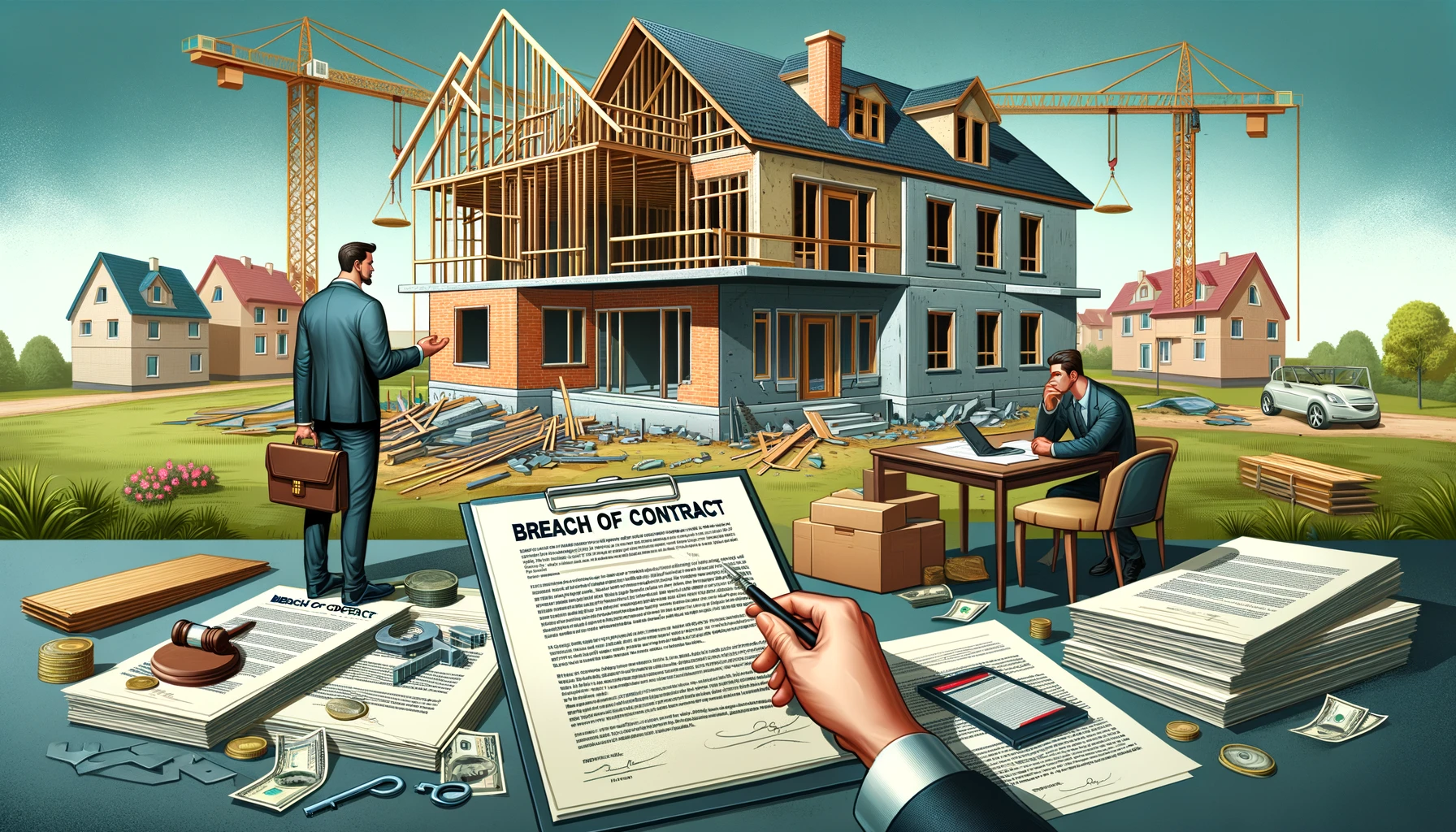
Understanding Breach of Construction Contracts in California
When an owner or lessee in California enters into a contract for the construction of improvements on real property, they expect the project to be completed according to the agreed-upon terms. However, when a contractor breaches this contract—either by failing to complete the work, delivering substandard work, or deviating from the specified terms—the owner or lessee is faced with not only the immediate physical and aesthetic issues but also significant financial implications. Understanding the recourse available for such breaches under California law, particularly in terms of damages, is crucial for aggrieved parties seeking to be made whole.
Recovery of Damages
In the event of a breach of contract by a contractor, California law provides a clear framework for the recovery of damages by the owner or lessee. The primary goal of awarding damages in these situations is to compensate the aggrieved party and, as far as possible, restore them to the position they would have been in had the contract been performed as agreed. This concept is fundamental to contract law and seeks to ensure fairness and equity in the resolution of such disputes.
Calculation of Damages
The calculation of damages under this legal framework involves a careful assessment of the most equitable form of compensation for the breach. Generally, the damages are calculated as the lesser of two figures:
- The cost of repairing or completing the construction to meet the contract specifications, or
- The difference in the property’s value due to the breach.
The former involves direct costs like materials, labor, and any additional expenses incurred to bring the property up to the promised standard. This option is preferred when it is feasible to correct the deficiencies or complete the unfinished work without incurring unreasonable costs.
However, when repairs are impracticable due to their disproportionate cost relative to the benefit or the extensive destruction they would entail, the measure of damages shifts to the diminution in value. This involves assessing the difference between the property’s current value with the defective or incomplete improvements and its value had the improvements been completed as per the contract. This measure ensures that the compensation reflects the actual economic loss suffered by the owner or lessee due to the breach.
Consequential Damages
Beyond these direct costs, California law also recognizes the potential for consequential damages resulting from a breach of contract. These may include losses such as the loss of use of the property, lost rental income, or other forms of economic harm that directly stem from the inability to use the property as intended due to the breach. These damages are recoverable, provided they were foreseeable and can be directly linked to the breach of contract.
Conclusion
The approach to damages under California law emphasizes a pragmatic and balanced resolution to disputes arising from construction contracts. It seeks to provide adequate compensation that reflects the true extent of the aggrieved party’s loss without resulting in unjust enrichment or imposing punitive measures on the contractor. Each case’s unique circumstances, including the specifics of the breach, the nature of the contracted improvements, and the consequent losses, play a crucial role in determining the appropriate measure and amount of damages.
In summary, the legal framework in California for addressing breaches of construction contracts is designed to ensure that owners and lessees have a clear path to recovery when their contractual expectations are not met. Through the careful assessment of damages, the law aims to rectify the breach’s impact and restore the aggrieved party to their rightful position, thereby upholding the principles of fairness and equity in contractual relationships.
Disclaimer
The content of this blog is intended solely for informational purposes and does not constitute legal advice. Legal issues are complex and individual; as such, if you seek guidance on a specific legal concern, please consult with a licensed attorney. Contact A.E.I. Law, P.C. at (888)-423-4529 for personalized legal counseling.


